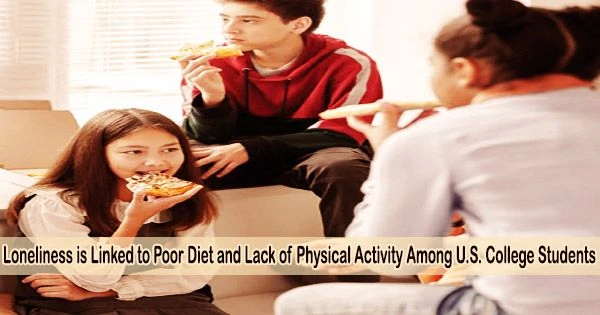Loneliness is a subjective feeling of social isolation, disconnection, or a sense of being alone, often accompanied by feelings of sadness, emptiness, and longing for companionship. It is a common human experience that can be caused by a variety of factors, including the loss of a loved one, social rejection, physical isolation, or a lack of meaningful social connections.
The National College Health Assessment reports that feelings of loneliness among college students have significantly grown over the past ten years. Many college freshmen transition to a new environment, which can exacerbate loneliness.
In addition, according to a survey from 2021, 44% of American college students said they were overweight or obese, which is more than usual. There is a paucity of study on food habits among college students and how they may contribute to obesity in college students, despite the fact that loneliness has been related to unhealthy weight and inactivity.
Loneliness can have negative effects on both physical and mental health. It has been linked to increased risk of depression, anxiety, substance abuse, and suicide. Additionally, loneliness can have negative effects on the immune system, cardiovascular health, and cognitive function.
Interventions to reduce loneliness may have a positive effect on health promotion in this population. This data go along with other initial findings from the Health Starts Here study that college students are not meeting healthy dietary guidelines or getting enough physical activity.
Professor Lawrence J. Cheskin
With data from the Mason:
Health Starts Here cohort study, Master of Nutrition alum Li Jiang found that loneliness was related to altered diet quality and physical inactivity. The research was done as part of Jiang’s master’s thesis, and Mason Nutrition and Food Studies Department Chair Lawrence J. Cheskin, Associate Professor Lilian de Jonge, former faculty member Cara Frankenfeld, and former postdoctoral fellow Ziaul H. Rana also contributed to the project.
“Our study supports a potential need for further research in understanding unhealthful dietary behavior and physical activity which may be related to loneliness, an emotion that impacts many college students,” says Jiang.
Students who reported high levels of loneliness (score ranges of 4-6 and 7-9) exhibited more sedentary (19.2%) and low levels of active (53.8%) behaviors than students who reported low levels of loneliness (score ranges of 10–12). Students who felt more alone had greater fat diets than those who felt less alone.
“Interventions to reduce loneliness may have a positive effect on health promotion in this population. This data go along with other initial findings from the Health Starts Here study that college students are not meeting healthy dietary guidelines or getting enough physical activity,” said Cheskin, who has an MD.
The study is a cross-sectional study that analyzed baseline data collected in the first wave of Mason: Health Start Here in 2019, and was funded by George Mason University’s Institute for BioHealth Innovation.
“Loneliness is associated with unhealthful dietary behaviors and physical inactivity among US college students,” was published in November 2022 in the Journal of American College Health.
Mason:
Health Starts Here is a groundbreaking transdisciplinary student cohort research to better understand and support university students’ health and wellbeing. This study will track a large sample of young adults across time, with a focus on Mason students, to document the variety of their college experiences and how it affects their health and wellbeing.
















